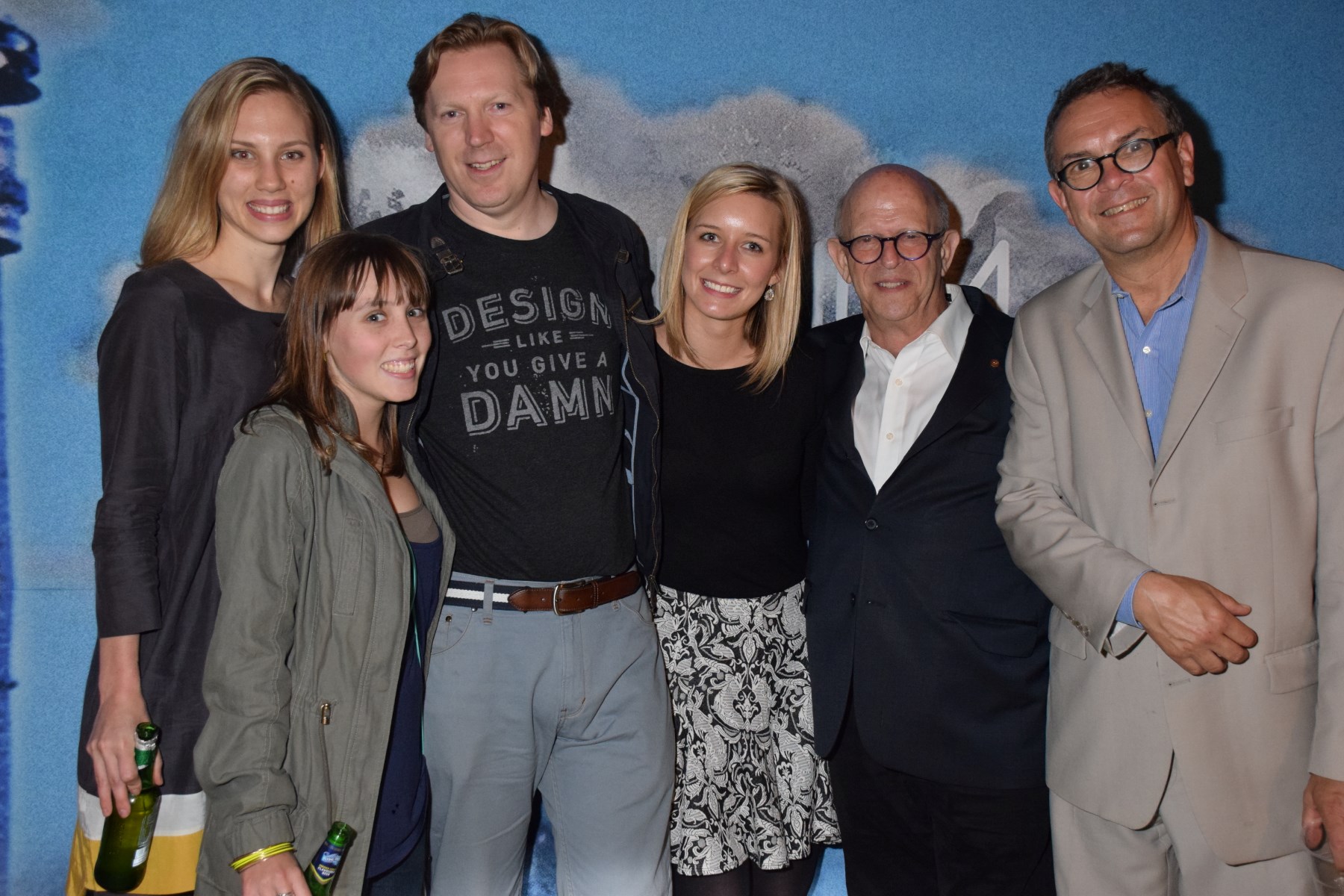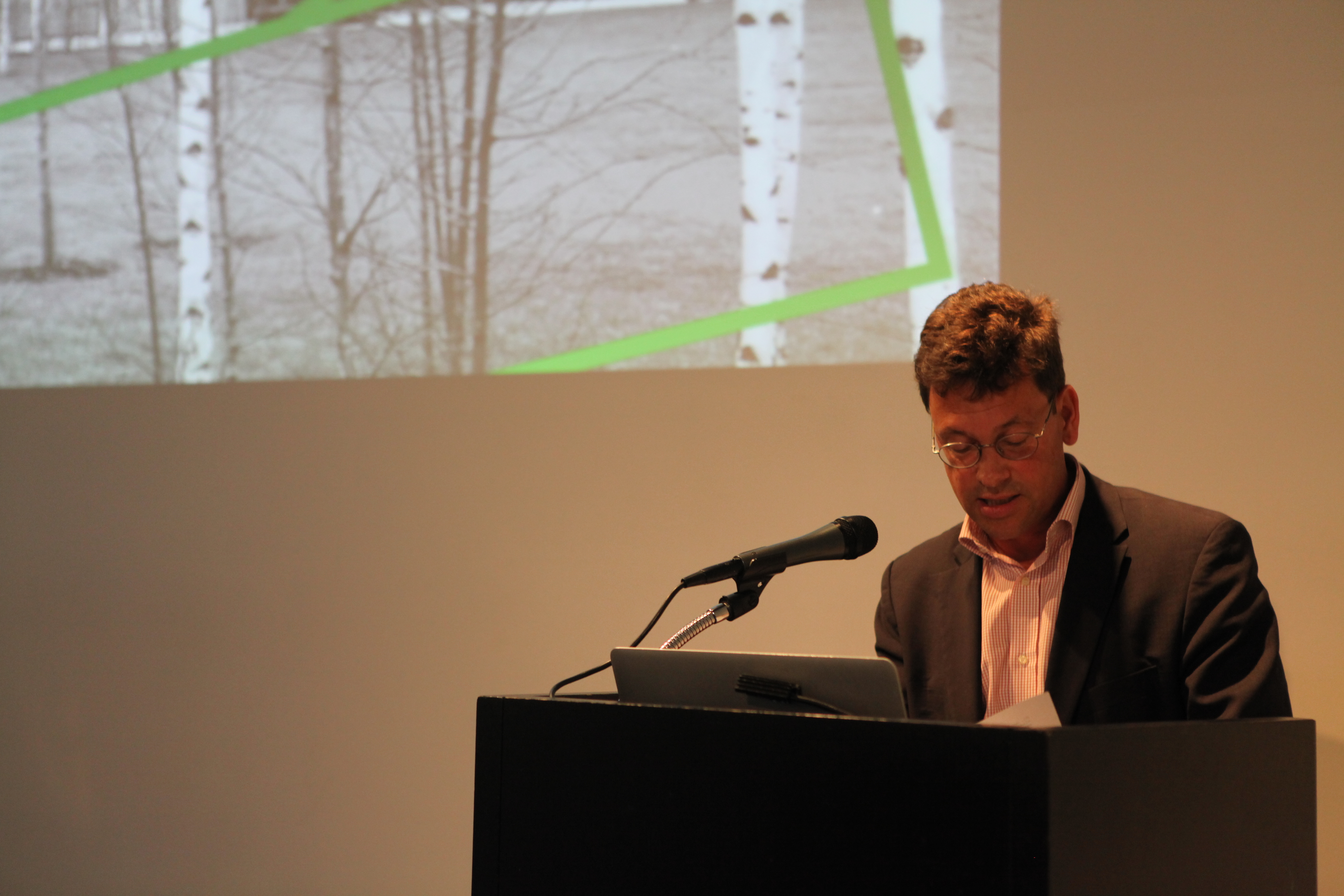Sophie Troskolanski, an organizer of the Healthcare Otherwhere International Student Competition; Mila Bolt, competition winner and a student at Tshwane University of Technology (TUT); Cameron Sinclair, Founder, Architecture for Humanity, Director, Jolie-Pitt Foundation, competition juror, and UIA keynote speaker; and Madeleine Swete Kelly, a Durban-based architect, were joined by AIANY 2014 President Lance Jay Brown, FAIA, and Executive Director Rick Bell, FAIA, at Archiball, the closing UIA party celebrating the student-run competition. Continue reading “Sighted: Durban Edition”
Tag: rick bell
Urban Nature, from Zurich to New York
“‘Nature’ is simply another 18th- – and 19th-century fiction.” – Robert Smithson
This is one of the quotations that AIANY Executive Director Rick Bell, FAIA, chose to introduce the 05.16.14 event, “Urban Nature: Between Human and Non-Human.” A collaboration between ETH Zurich and Columbia GSAPP, the conference featured eight speakers who approached the relationship between “urban” and “nature” from a variety of angles; yet, the construction of nature as a concept and the natural-built dichotomy were major themes running through the fascinating collection of topics explored. Continue reading “Urban Nature, from Zurich to New York”
Names in the News
The winners of the design100 2014 New York Design Awards, presented at Steelcase on 05.20.14 as the closing event for NYCxDesign, include: STUDIO V Architecture for Empire City Casino at Yonkers Raceway; Family and PlayLab for +Pool; STUDIOS Architecture for Shuttercock Headquarters; Gwynne McCue Interiors for Transformer Tea House Dining Room; and dlandstudio architecture and landscape architecture for BQ Green; Built/NYC at the NYC Department of Design + Construction wins the Design Champion Award. AIANY executive director Rick Bell, FAIA, presented a special award to the City of New York… Continue reading “Names in the News”
Ethics and the Road to Convention: Durban and Chicago
As we prepare for the next meeting of the International Union of Architects (UIA) in Durban, South Africa, this August, we are confronted with a proposal that demands we take an immediate position. Reporter Harriet Sherwood wrote about the proposal on 03.20.14 in London’s The Guardian. Since the matter surfaced, there have been endless articles, e-mails, and calls. While some think it may all blow over, we cannot allow it to be floated without immediate objection.
The Royal Institute of British Architects (RIBA) plans to bring a proposal to the floor of the upcoming 2014 bi-annual meeting of the UIA. The RIBA has demanded the suspension of the Israeli Association of United Architects (IAUA) from the UIA, saying it is complicit in the construction of illegal settlements in the West Bank and East Jerusalem, and other violations of international law. While former RIBA President Angela Brady told a meeting of its council how important the proposal was, other council members pointed to human rights violations in other parts of the world, such as North Korea, which is a member of the UIA, asking why they should not be held to similar standards. Notable architects and members of AIANY have spoken out or written against the RIBA proposal, including Richard Meier, FAIA, and Daniel Libeskind, AIA.
AIANY Executive Director Rick Bell, FAIA, and I drafted a letter denouncing the RIBA proposal. The grounds upon which our draft was based centered on inclusion and dialogue, as opposed to exclusion and highly prejudicial, selective condemnation. The letter was put before the AIANY Board at its last meeting on 04.22.14. While certain details and some personalization were criticized, the general sense of the letter was approved. All thought it inappropriate for the RIBA to exclude an entire country’s architects – both Israeli and Palestinian – because the RIBA takes issue with the politics of that country. As the mission statement of the UIA is “to unite the architects of the world without any form of discrimination,” it should be obvious that excluding one country’s architects defeats the purpose. Continue reading “Ethics and the Road to Convention: Durban and Chicago”


